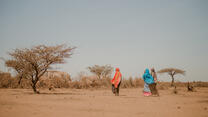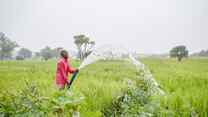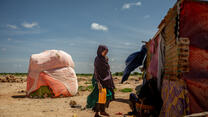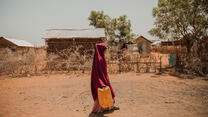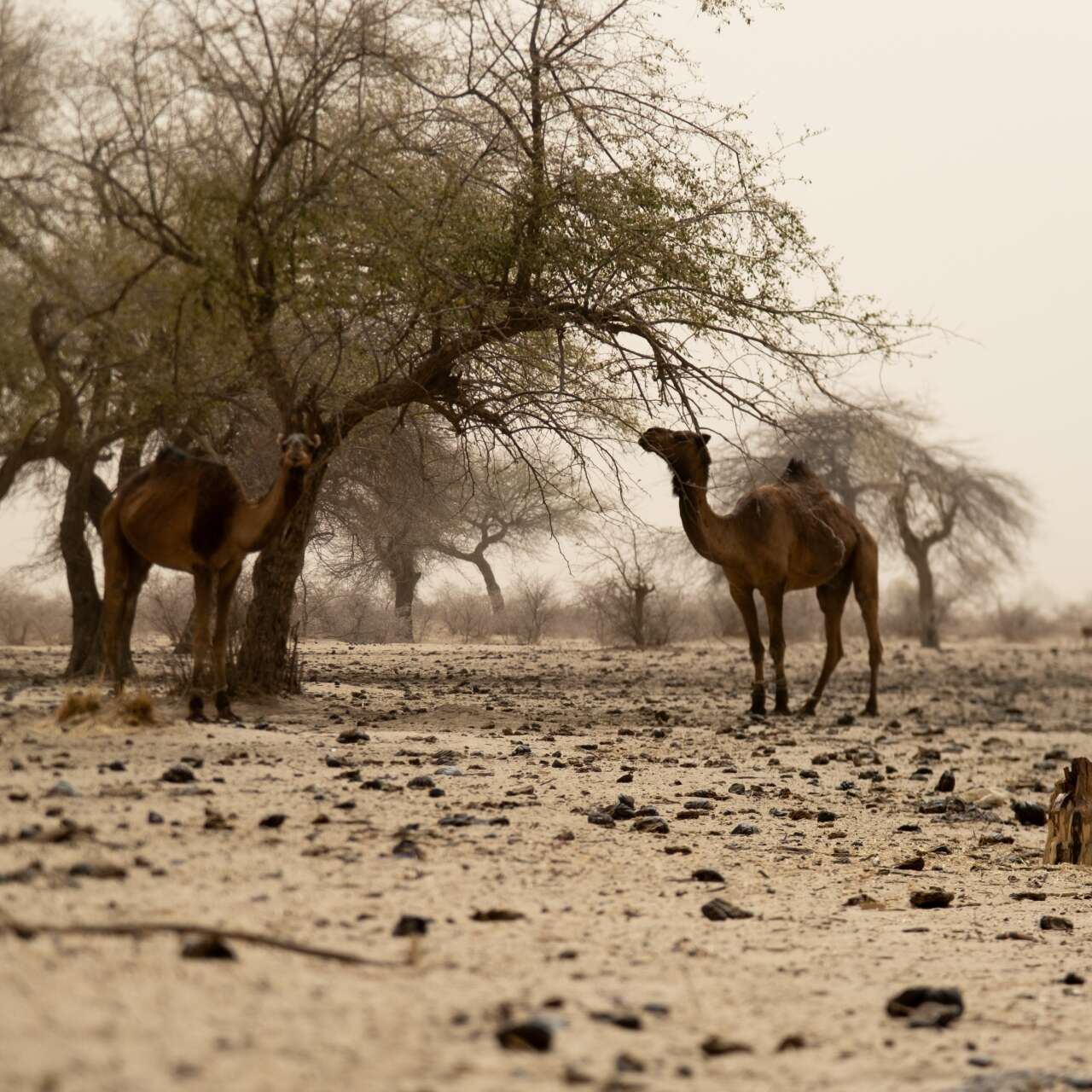
Climate change is a devastating force on its own, driving floods, droughts and raising temperatures worldwide. For countries already destabilized by conflict, it deepens humanitarian needs, making dangerous situations worse. This is the reality for communities that sit at the epicenter of this convergence of climate vulnerability and ongoing conflict.
The International Rescue Committee (IRC) has identified 17 countries that are enduring brutal conflicts while being on the front lines of a global climate crisis they did not create. These countries bear the brunt of the climate crisis, shouldering a disproportionate share of its impacts.
These 17 nations—(Afghanistan, Burkina Faso, Central African Republic, Cameroon, Democratic Republic of the Congo, Ethiopia, Haiti, Mali, Mozambique, Myanmar, Niger, Nigeria, Somalia, South Sudan, Sudan, Syria and Yemen)— are home to only 10.5% of the world’s population and contribute a mere 3.5% of all global greenhouse gas emissions while accounting for:
- 35% of the global population living in extreme poverty
- 33% of all people affected by natural disasters over the past three years
- 71% of the world’s population in humanitarian need
When climate change and conflict intersect, the challenges may seem immense—but solutions are within reach.
Communities in these regions have shown remarkable resilience, but they need more support to adapt, recover and build a sustainable future. The IRC is working with these communities to address the immediate impacts of climate change.
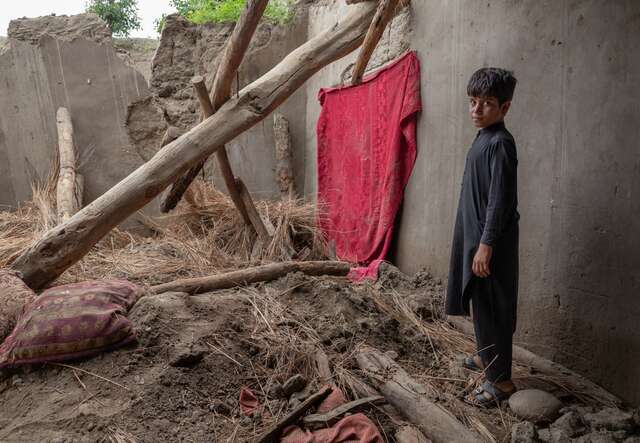
How do climate change and conflict intersect?
The reality of climate change in conflict zones is one of displacement, scarcity and violence. In countries already experiencing conflict, climate shocks—such as droughts, floods and changing rainfall patterns—contribute to a vicious cycle of destabilization. Climate change exacerbates shortages of essential resources like water and arable land, fueling competition among groups, driving further violence and making it even harder for communities to recover.
While these conditions perpetuate instability, communities can recover through meaningful investment in climate resilience and peacebuilding.
Climate change sparks disease outbreak in Syria
Syria is a stark example of how climate change compounds the challenges of conflict. More than a decade of violence has destroyed the country’s infrastructure, including its water and sanitation systems, leaving communities increasingly vulnerable to disease outbreaks. With groundwater, rainfall and even the flow of the Euphrates River reduced by extreme heat and drought attributable to climate change, many Syrians have turned to contaminated water sources.
One result: a cholera outbreak that began in 2022 has gone largely unchecked, with a significant percentage of the country’s health care system already shattered by conflict.
The IRC is providing WASH (water, sanitation and hygiene) services, curbing disease outbreaks and restoring essential health infrastructure in Syria, helping communities adapt to the changing climate while also responding to the impacts of the ongoing conflict.
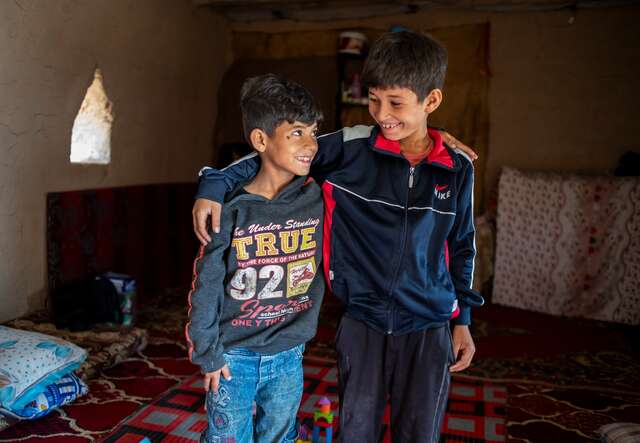
Severe drought deepen crisis in Somalia
In Somalia, climate change is both a direct and indirect contributor to the nation’s extreme vulnerabilities. The country has long struggled with conflict, and now, prolonged droughts and changing rainfall patterns are deepening the crisis, especially for women and children. Catastrophic crop failures, livestock deaths and increasing food insecurity threaten millions of people already displaced by climate change and conflict.
The IRC’s response in Somalia provides life-saving support to families and helps them build climate resilience to future shocks. Our livelihood programs enable communities to recover from the economic impacts of both climate change and conflict, while promoting sustainable agriculture and climate-resilient farming techniques. This approach responds to immediate suffering and helps lay the foundation for a durable, long-term recovery.
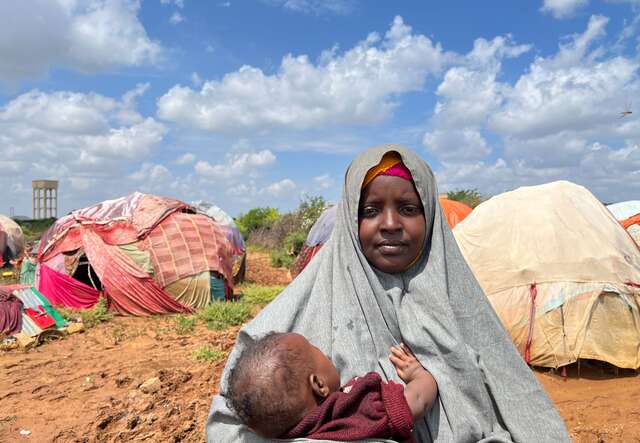
Driving solutions through climate finance
Climate finance is the financial support provided to help countries mitigate and adapt to the impacts of climate change. It is a critical lifeline that enables communities to mitigate climate risks and safeguard livelihoods.
In regions like Somalia, Syria and the Sahel, the IRC is working with affected communities, channeling climate finance towards a number of improvements, including water security, food systems and health care infrastructure. Adaptation and resilience solutions that the IRC believes should be supported with sustained climate finance include the development of early warning flood and cash assistance systems in Nigeria and the Seed Security project, which has been implemented in Syria and elsewhere.
By investing in these projects, the international community can help communities address both the impacts of climate change and conflict, helping communities respond to the challenges they are already facing while laying the groundwork for a more resilient future.
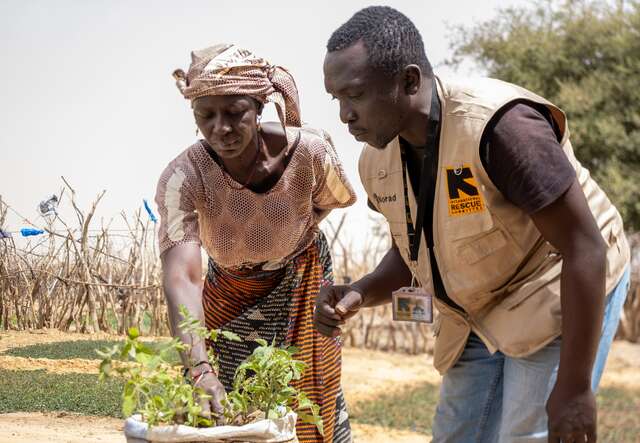
What needs to happen next?
The data is clear: The countries most affected by the combined crises of climate change and conflict are also among the poorest and most vulnerable. They have limited resources to adapt to the changing climate, leaving them facing extreme poverty, displacement and political instability.
Climate action must urgently focus attention and resources on these most vulnerable countries. The international community must increase investment in climate resilience and conflict prevention programs, prioritizing integrated solutions that combine climate adaptation with peacebuilding to ensure that these countries can not only survive the current crisis but thrive in the future.
By providing humanitarian aid and climate programming in countries like Somalia and Syria, the IRC is helping communities adapt to the changing climate and rebuild their lives after conflict. But we can’t do it alone.
How can you help?
Support IRC’s ongoing efforts to help vulnerable communities adapt to climate change and recover from conflict. Donate today to make a difference.
*Last name excluded for privacy
